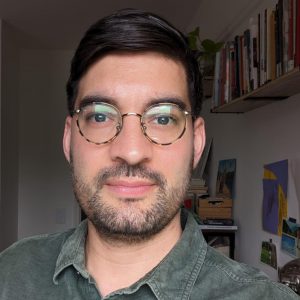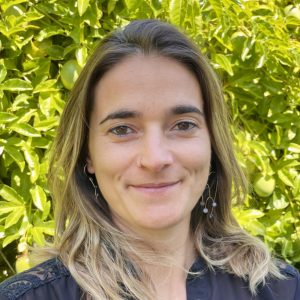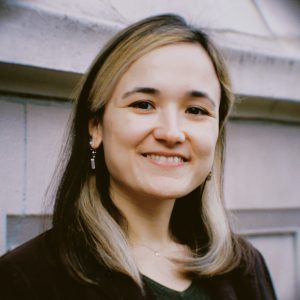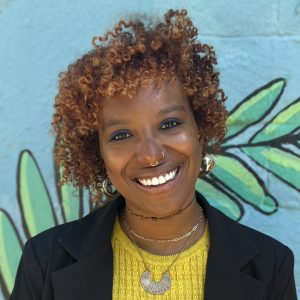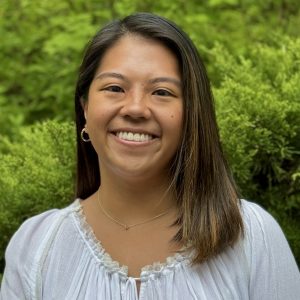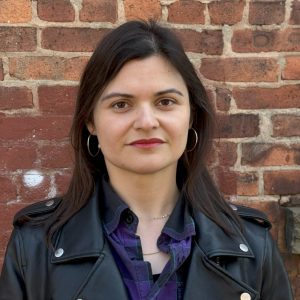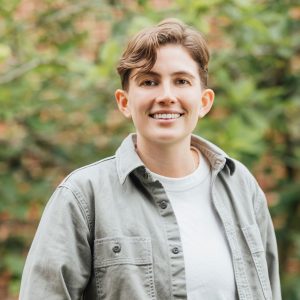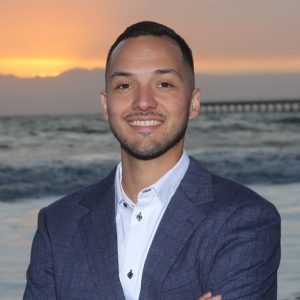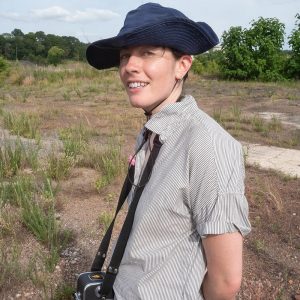2024-2025
2024-2025 Fellows
Andrés Besserer Rayas
Andrés Besserer Rayas’s dissertation analyzes how and when states provide documentation to undocumented immigrants, and how such documentation, or lack of it, affects them and their families. Using multi-sited ethnographic and comparative analysis, he studies Colombia as a paradigm of inclusionary policies towards immigrants, in contrast to the United States.
His publicly engaged scholarship in the US includes research to protect DACA, advance immigrant rights and health post-Covid-19, driver’s licenses for the undocumented, among other topics. In Colombia, his research on the effects of statelessness was used in a ruling by the country’s highest court that protected plaintiff’s rights, and publicized the issue. He received ESS’s 2023 pre-tenure publicly engaged sociology award.
His research has been published in Sociological Forum; The Journal on Migration and Human Security; Territory, Politics, Governance; among others. He has an MSc from University College London and a BA from El Colegio de México.
Marc Dadigan
Marc Dadigan is a freelance investigative journalist and PhD candidate in Native American Studies at the University of California, Davis. He has worked with Tribes and Indigenous communities in Northern California for more than 14 years as a journalist, public history project organizer, curriculum editor and community-based researcher.
He is working on a dissertation in collaboration with the Winnemem Wintu Tribe, the Indigenous people of the McCloud River (Winnemem Waywaket). Titled Listening to Lendada Nur (Ancient, Wise Salmon), the dissertation is an ethnographic and historical investigation into the Winnemem Wintu’s partnership with wildlife agencies to restore salmon to their ancestral watershed for the first time since the Shasta Dam blocked the cultural and ecological keystone species from returning home 80 years ago.
Tribal members are assisting in the scholarship by identifying research objectives, interpreting archival and ethnographic data and developing the theoretical framework based on concepts from the Winnemem Wintu language.
Irene Del Mastro N.
Irene is a medical sociologist who studies the ties between medicine and poverty governance. Her dissertation uses participant observation, in-depth interviews, and documentary analysis to examine the expansion of healthcare for the unhoused in California and its implications for health inequalities and homelessness governance. Irene’s research documents how medical providers working on the streets of Los Angeles navigate three tensions, (1) who among the large and widespread homeless population becomes their patients and who are left behind, (2) what services they provide considering the multiple social and medical needs of the unhoused and the bureaucratic, technological, and organizational challenges of practicing medicine on the streets, and (3) how they engage the unhoused—a population known for distrusting the medical system—in medical care. This research has been supported by the American Sociological Association and The Haynes Foundation.
Irene was first trained as a sociologist at the Pontificia Universidad Católica del Perú. She received an M.A. in Gender and Women’s Studies from the University of Wisconsin-Madison and an M.A. in Sociology from the University of California, Los Angeles. Her previous work has informed policies that address gender and health inequality in Perú and has been published in multiple academic and media outlets.
Selen Guler
Selen’s work is grounded in comparative historical approaches and problem-solving sociology. Her research focuses on political economy, policymaking processes, and change-making in higher education.
Selen’s dissertation examines the conditions of possibility for progressive taxation in superstar cities with housing crises and concentrations of corporate power. Through a comparative analysis of key moments of the push for taxation in Seattle between 2017-2020, Selen traces the political shifts and innovations that allowed the city to leverage its proximity to the knowledge economy to generate public revenue. The findings offer insights into how subnational dynamics and institutional structures shape local responses to federal austerity reforms and tax cuts.
Selen works at the University of Washington’s Center for Evaluation & Research for STEM Equity (CERSE), doing participatory action research with academic changemakers and equity-focused evaluation. Selen earned an MA in Sociology from the University of Washington, and she holds a BA in Sociology from Bogazici University.
Brie McLemore
Brie McLemore will be completing her dissertation at the University of California, Berkeley in 2025. She is currently an Assistant Professor in the Department of Political Science at the University of Washington.
Brie is a PhD candidate in the Jurisprudence and Social Policy Program at the University of California, Berkeley. Her dissertation, titled “When the Street Lights Come On: How a ‘Smart City’ became a Surveillance State,” explores how smart street lights became a tool for law enforcement, even when this was not their intended use, and the consequences for historically criminalized communities of color. She also interrogates how cities address residents’ concerns regarding accountability, transparency, and privacy rights when adopting surveillant technologies. Through qualitative interviews, ethnographic fieldwork, and archival research, Brie traces the historical uses of street lights for surveillance and social control, culminating in the smart street lights of today.
Brie also has a Masters in Public Policy/Master of Arts in Women’s, Gender, and Sexuality Studies from Brandeis University and a Bachelor of Arts in Anthropology and Gender Studies from New College of Florida
Victoria Tran
Victoria Tran is an urban sociologist who studies how community groups and neighborhoods participate in local politics to influence policies on redevelopment and policing.
Her dissertation studies how community groups participated in and opposed redevelopment in Los Angeles’ Chinatown from 1975-2005. Within systems of urban governance that promote community-engagement and participatory governance, claims of community ownership gives local actors legitimacy to define who governs, how they come to govern, and who speaks for the urban poor. Using archival documents, interviews, and historical quantitative data, her dissertation analyzes how the power to define the neighborhood and its priorities was contested by groups with different social, economic, and cultural ties to the space and how these contestations shaped what groups the government legitimized as community representatives, how projects were prioritized and funded, and who benefited from redevelopment projects.
Outside of UCLA, Victoria volunteers as a tenant organizer. She received a BA in Leadership and Public Policy at the University of Virginia.
Daniela Valdes
Daniela Valdes completed her dissertation at Rutgers University in 2025. She is currently a Postdoctoral Fellow in LGBT Studies at Princeton University.
Daniela researches the history of trans and gender diverse people of color in the twentieth century United States. Her scholarship lies at the intersection of LGBTQ history, labor and working-class politics, and Black and Brown liberation movements.
Based on extensive research in the archives of criminalization of New York City and oral histories with trans and gender nonconforming people of color, Valdes’s dissertation offers a grassroots social history of working-class Black and Brown gender diverse New Yorkers from the Great Migrations of African Americans and Puerto Ricans at midcentury to the early twenty-first century. Her dissertation is a working-class history that broaches forms of survival and resistance, including participation in the informal economy. Additionally, she examines the under-researched historical connections between the carceral state and psychiatry showing how the era of mass public-order policing underwrote the criminalization and pathologization of racialized, queered, and disabled people that continues to this day.
Daniela is a gender nonconforming Latino scholar with over a decade of community engagement and activism in the trans and queer communities of the Northeastern United States. She serves as the chair of the community advisory board for “Y’all Better Quiet Down”: Trans BIPOC Digitization Initiative” of the Digital Transgender Archive. Previously, she worked with the Rikers Public Memory Project where she co-created the documentary Story by Story: Building A People’s History of Rikers Island.
2024-2025 Honorable Mentions
Abby Cunniff
Abby Cunniff studies pressing environmental justice and climate justice issues in prisons and the myriad issues that arise for incarcerated people.
Abby's dissertation project is a labor history of California’s prison fire camp program from 1970-2020. It asks under what conditions incarcerated workers became the "infantry" of wildfire response in the state and how racial capitalism shaped this program into a climate change response workforce in the late twentieth century. This contemporary history opens up critical inquisitions about labor and power within climate planning and environmental change.
They are a Ph.D. Candidate at the University of California, Santa Cruz in the Environmental Studies department. They received their B.A. from Wesleyan University in 2017 and were a UCSC Global and Community Health Fellow in 2021.
Jonathan Ibarra
Jonathan Ibarra is an ethnographer whose research centers on inequality, Latinx youth, culture, and education. He is a PhD candidate in sociology at the University of California, Santa Barbara.
His dissertation Disciplinary Negligence: Punitive Processes, Support Networks, and the Experiences of Mexican American High School Students explores the experiences of working-class Mexican American students and how they navigate school discipline and support networks. Drawing on data from a three-year ethnography at a suburban southern California high school that implemented restorative justice school discipline, this project illuminates how practices of restorative social control obscure and promulgate neglect of Mexican American students even within a well-resourced school.
He also earned his BA and MA in sociology at the University of California, Santa Barbara, where he served on the Hispanic Serving Institute committee as an undergraduate representative, and as a McNair’s Scholar Program Graduate Research Mentor. As a community-engaged scholar, Jonathan has continuously mentored marginalized youth through volunteer work with schools and community organizations.
Sasha Tycko
Sasha Tycko is a PhD candidate in the department of Anthropology at Emory University. Her PhD research focuses on the Atlanta forest where protestors gathered and lived for two years in defiance of the city's proposal to construct a major police training complex (known nationally as "Cop City"). Over two years of fieldwork, Tycko used a range of media to explore how the abandoned forest landscape — the former site of the city prison farm and a slave plantation — motivates new articulations of history, nature, and ethics.
Through this work, Tycko has produced two observational films, Dwelling: A Measure of Life in the Atlanta Forest and Atlanta Forest Garden: Four Days of Work (with Marion Lary), and a photography exhibition, Ways of the Atlanta Forest, currently on view in the Anthropology building at Emory University. Her writing and photographs from the forest have been published in popular and academic presses including n+1, Jewish Currents, Mergoat Magazine, and Trans Studies Quarterly. Her films have screened at a variety of venues around the country and abroad, from university cinemas to community bookstores and DIY spaces.
Tycko's PhD research is supervised by Dr. Anna Grimshaw. She received her BA in Political Science from the University of Chicago.
